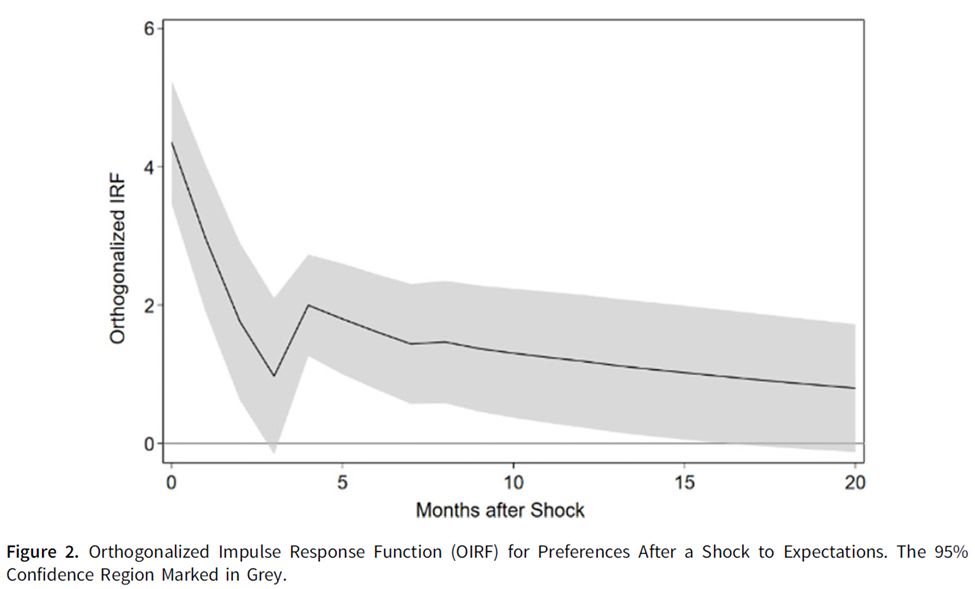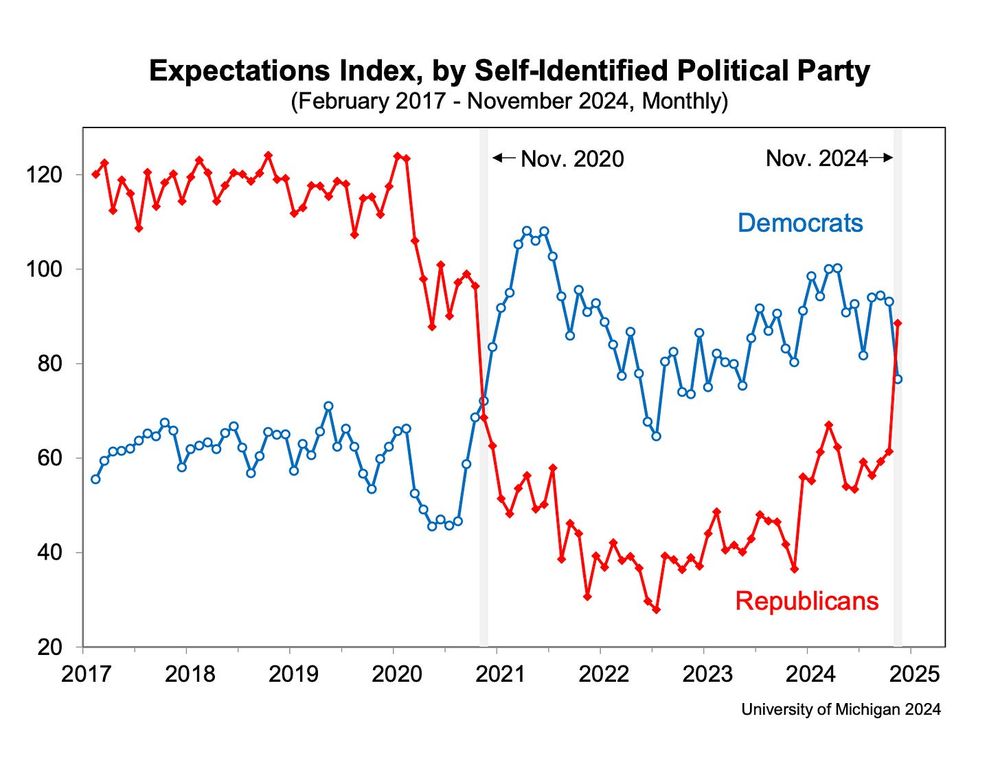Alon Yakter
@ayakter.bsky.social
Political science faculty @ Tel Aviv University
Looking forward, in Israel-Palestine and other conflicts, meaningful positive signals, esp. by elites, can make a real difference and shift negative dynamics into a positive path toward compromise & peace. We need and deserve better leadership and must seek ways to end the current atrocities. \end
August 8, 2025 at 11:21 AM
Looking forward, in Israel-Palestine and other conflicts, meaningful positive signals, esp. by elites, can make a real difference and shift negative dynamics into a positive path toward compromise & peace. We need and deserve better leadership and must seek ways to end the current atrocities. \end
The project started before the Gaza war, but it's quite relevant. Public hawkishness, as we witness today, may partly reflect a "pessimism trap": if ppl don't believe peace is possible, they won’t support necessary compromises. But these views can soften if their expectations of the future improve.
August 8, 2025 at 11:21 AM
The project started before the Gaza war, but it's quite relevant. Public hawkishness, as we witness today, may partly reflect a "pessimism trap": if ppl don't believe peace is possible, they won’t support necessary compromises. But these views can soften if their expectations of the future improve.
We find both shocks shifted support for compromise in the expected negative/positive direction. Further, this happened across left- and right-wing voters. Thus, our findings challenge the idea that political beliefs are immovable in intractable conflicts. They can move - when people expect change.

August 8, 2025 at 11:21 AM
We find both shocks shifted support for compromise in the expected negative/positive direction. Further, this happened across left- and right-wing voters. Thus, our findings challenge the idea that political beliefs are immovable in intractable conflicts. They can move - when people expect change.
Second, we examine individual-level reactions to two historical shocks to Israeli-Jewish expectations for peace: Hamas’ electoral victory in 2006 (negative shock) and Egypt President Sadat's surprise visit to Israel in 1977 (positive shock). Both altered peace expectations sharply and exogenously.
August 8, 2025 at 11:21 AM
Second, we examine individual-level reactions to two historical shocks to Israeli-Jewish expectations for peace: Hamas’ electoral victory in 2006 (negative shock) and Egypt President Sadat's surprise visit to Israel in 1977 (positive shock). Both altered peace expectations sharply and exogenously.
First, using a time-series VAR model, we find evidence that aggregate expectations Granger-cause preferences but not the other way around. That is, Israeli-Jewish public opinion becomes more supportive of diplomacy & compromise after popular expectations for peace grow, not vice versa.


August 8, 2025 at 11:21 AM
First, using a time-series VAR model, we find evidence that aggregate expectations Granger-cause preferences but not the other way around. That is, Israeli-Jewish public opinion becomes more supportive of diplomacy & compromise after popular expectations for peace grow, not vice versa.
Our findings reaffirm the first view: over the years, improved expectations for peace among Israeli Jews do predict improved willingness to negotiate and compromise. Unfortunately, this works negatively, too: pessimism hardens hawkish preferences. We show this using two complementary analyses:
August 8, 2025 at 11:21 AM
Our findings reaffirm the first view: over the years, improved expectations for peace among Israeli Jews do predict improved willingness to negotiate and compromise. Unfortunately, this works negatively, too: pessimism hardens hawkish preferences. We show this using two complementary analyses:
This argument is grimmer, implying a negative equilibrium where pessimism & hawkishness reinforce one another, blocking ppl’s receptiveness to signals of a better future. With this in mind, we analyze multi-decade survey data on Israeli Jews to see which precedes which, expectations or preferences.

August 8, 2025 at 11:21 AM
This argument is grimmer, implying a negative equilibrium where pessimism & hawkishness reinforce one another, blocking ppl’s receptiveness to signals of a better future. With this in mind, we analyze multi-decade survey data on Israeli Jews to see which precedes which, expectations or preferences.
Yet this claim is challenged by theories of "Motivated Reasoning": strong partisan preferences, as is often the case in violent conflicts, motivate us to interpret reality and future scenarios so they fit our pre-existing views (e.g., famously, Americans’ views of the economy).

August 8, 2025 at 11:21 AM
Yet this claim is challenged by theories of "Motivated Reasoning": strong partisan preferences, as is often the case in violent conflicts, motivate us to interpret reality and future scenarios so they fit our pre-existing views (e.g., famously, Americans’ views of the economy).
Why does this Q matter? Some conflict research argues that improving future expectations for an agreement is a key pathway to building popular willingness for hard compromises. In this view, many ppl's hawkish stances "price in" pessimism and can be softened with positive signals of future change.
August 8, 2025 at 11:21 AM
Why does this Q matter? Some conflict research argues that improving future expectations for an agreement is a key pathway to building popular willingness for hard compromises. In this view, many ppl's hawkish stances "price in" pessimism and can be softened with positive signals of future change.
Reposted by Alon Yakter
Alternatively, you can read this interview with the excellent @noamgidron.bsky.social & Yaniv Roznai.
Also a reminder that boycotting all Israeli academics is not just morally dubious (collective punishment) but also strengthens rather than weakens the Israeli far right.
Also a reminder that boycotting all Israeli academics is not just morally dubious (collective punishment) but also strengthens rather than weakens the Israeli far right.

Two scholars warn of Israel’s democratic backsliding, hidden by Oct. 7’s fog of war
In their new Hebrew-language book 'Democracy in Retreat,' Noam Gidron and Yaniv Roznai claim the government is using populism and polarization to chip away at democracy
www.timesofisrael.com
July 23, 2025 at 8:46 PM
Alternatively, you can read this interview with the excellent @noamgidron.bsky.social & Yaniv Roznai.
Also a reminder that boycotting all Israeli academics is not just morally dubious (collective punishment) but also strengthens rather than weakens the Israeli far right.
Also a reminder that boycotting all Israeli academics is not just morally dubious (collective punishment) but also strengthens rather than weakens the Israeli far right.
Bred for its skills in magic.

February 27, 2025 at 5:26 PM
Bred for its skills in magic.
Congrats, well deserved!
December 3, 2024 at 4:27 PM
Congrats, well deserved!

